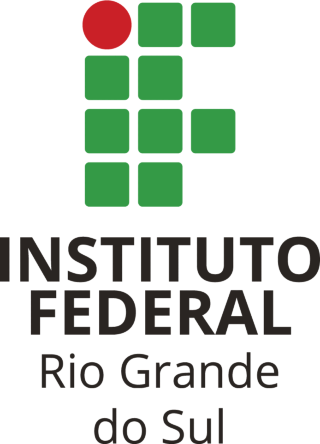Formação de professores da educação básica em Robótica Educacional: uma estratégia baseada no Modelo TPACK
| Title: | Formação de professores da educação básica em Robótica Educacional: uma estratégia baseada no Modelo TPACK |
| Author: | Freitas Neto, João Joaquim de |
| Abstract: |
O uso das Tecnologias Digitais da Informação e Comunicação (TDIC) com estratégias pedagógicas pode ser aplicado a diversas áreas do conhecimento. Existem diferentes TDIC que podem ser usadas na área da educação, tais como ferramentas interativas, jogos digitais, objetos de aprendizagem, robótica educacional, entre outras. Porém, um dos principais problemas enfrentados é a pouca experiência que os docentes possuem no uso e desenvolvimento dessas tecnologias. Assim, a presente pesquisa teve como foco investigar como um curso de formação continuada em Robótica Educacional (RE) para professores, tendo como apoio pedagógico ferramentas da modalidade EaD, pode contribuir para o desenvolvimento do Pensamento Computacional (PC) a fim de favorecer o surgimento do pensamento científico, crítico e criativo. Para tanto, foi utilizada como tecnologia fundamental a RE, pois acredita-se que com ela seja possível desenvolver de forma integrada diversos conhecimentos. O público-alvo desta pesquisa foram os professores da rede pública de ensino que atuam na educação básica. Quanto aos procedimentos metodológicos esta investigação caracteriza-se por ser de natureza aplicada e quanto aos objetivos ela é exploratória, tendo sua abordagem de forma qualitativa. A pesquisa foi conduzida através de um estudo de caso, utilizando-se como instrumento para coleta de dados dois questionários que foram aplicados, um no início e outro ao término do curso. Os recursos utilizados foram um kit que utiliza Arduino Mega, e plataformas e softwares de código aberto. Pode-se observar, nesta investigação, que a RE atende a vários elementos presentes no construcionismo, bem como auxilia no desenvolvimento do pensamento computacional, influenciando de forma direta na aquisição do pensamento científico, crítico e criativo. Entretanto, algumas limitações foram observadas sobre a adoção do modelo TPACK (Technological Pedagogical Content Knowledge) através da utilização de formação continuada orientada a interdisciplinaridade. Constatou-se também que boa parte dos participantes apresentaram lacunas nos conhecimentos pertinentes à prática docente com inclusão de TDIC no contexto de sala de aula. Também foram observadas limitações acerca da permanência no curso e da efetiva participação dos professores nas atividades apresentadas no Ambiente Virtual de Aprendizagem (AVA) Moodle. A análise dos dados conduz a reflexões sobre a necessidade de aprofundar as pesquisas a respeito da oferta de formação continuada que aborde TDIC e, como a robótica educacional pode contribuir para o aprimoramento das práticas pedagógicas dos docentes. Tais verificações podem indicar a necessidade de reestruturar a formação inicial destes educadores. The use of Digital Information and Communication Technologies (TDIC) with pedagogical strategies can be applied to several areas of knowledge. There are different TDIC that can be used in the field of education, such as interactive tools, digital games, learning objects, educational robotics, among others. However, one of the main problems faced is the lack of experience that teachers have in the use and development of these technologies. Thus, the present research focused on investigating how a continuing education course in Educational Robotics (ER) for teachers, with pedagogical support tools of the EaD modality, can contribute to the development of Computational Thinking (CP) in order to favor the emergence of of scientific, critical and creative thinking. Therefore, ER was used as a fundamental technology, as it is believed that with it it is possible to develop diverse knowledge in an integrated way. The target audience for this research was public school teachers who work in basic education. As for the methodological procedures, this investigation is characterized by being of an applied nature and as for the objectives, it is exploratory, having its approach in a qualitative way. The research was carried out through a case study, using as an instrument for data collection two questionnaires that were applied, one at the beginning and another at the end of the course. The resources used were a kit that uses Arduino Mega, and open source platforms and software. It can be observed, in this investigation, that RE attends to several elements present in constructionism, as well as helps in the development of computational thinking, directly influencing the acquisition of scientific, critical and creative thinking. However, some limitations were observed on the adoption of the TPACK model (Technological Pedagogical Content Knowledge) through the use of continuing education oriented to interdisciplinarity. It was also found that most of the participants had gaps in knowledge relevant to teaching practice with the inclusion of TDIC in the classroom context. Limitations were also observed regarding the permanence in the course and the effective participation of teachers in the activities presented in the Virtual Learning Environment (VLE) Moodle. Data analysis leads to reflections on the need to deepen research on the offer of continuing education that addresses TDIC and how educational robotics can contribute to the improvement of teachers' pedagogical practices. Such verifications may indicate the need to restructure the initial training of these educators. |
| URI: | https://dspace.ifrs.edu.br/xmlui/handle/123456789/805 |
| Date: | 2023 |
Files in this item
| Files | Size | Format | View | Description |
|---|---|---|---|---|
| 123456789805.pdf | 1.898Mb |
View/ |
Texto completo |



